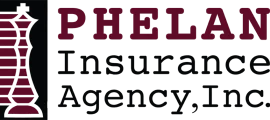The trucking industry is the “lifeblood” of the U.S. economy, but is “under siege by litigation,” according to a new report from the U.S. Chamber of Commerce Institute for Legal Reform (ILR).
Verdicts against trucking companies increased by 867% in average size from 2010-2018, ILR wrote, citing research from the American Transportation Research Institute (ATRI). ILR also reviewed 154 trucking litigation verdicts and settlements between June 2020 and April 2023, finding an average plaintiff award of $27.5 million and a median award of nearly $760,000, and an average settlement of $10.6 million and a median settlement of $210,000.
All the while, the rate of fatal crashes involving a truck fell from 2.23 to 1.47 per hundred million truck miles traveled between 2000-2020.
“In other words, even though trucking is getting safer, verdicts are getting bigger, and that’s a problem.”
U.S. Chamber of Commerce Institute for Legal Reform (ILR)
A consequence of rising verdicts and settlements has been increased insurance costs for trucking firms. Rising insurance costs can erode or erase operating margins that are already thin, ILR said. Between 2010-2020, a trucking company’s insurance premium costs increased 47% to $0.087 per mile.
Despite significant rate increases, insurers offering coverage to trucking companies have been unable to turn a profit over the last decade, according to the report. “Some insurers have left the market, insurers that remain are offering less coverage or tighter bands of coverage, and trucking companies are having to take on more risk,” ILR wrote. “The net result is that both small and large trucking companies find it increasingly challenging to obtain insurance for their operations.”
Researchers said tactics such as medical referral networks, inflated billing practices, “reptile” courtroom strategies by plaintiffs’ lawyers, a widening circle of defendants, and an “ambiguous and exploitable standard of care” for trucking operations together fuel social inflation for the industry.
Plaintiffs and their attorneys cast wider nets in civil suits to reach deeper pockets and maximize potential payouts, ILR posited. More than 90% of motor carriers are small businesses with 10 or fewer trucks, and attorneys look to drag other sources, such as freight brokers, into lawsuits.
ILR called for transparency in medical-damage claims, barring the presentation of inflammatory arguments if the defendant stipulates responsibility for a driver’s negligence, “reasonable caps” on noneconomic damages, prohibiting the practice of anchoring by plaintiffs’ attorneys to secure high damage awards, permitting evidence of non-use of seat belts by plaintiffs in damage calculations, and clarifying the standard of care for motor carrier selection and failure-to-equip claims.
“Policymakers, judges, and professional ethics regulators must take action to restore balance and fairness in truck accident litigation,” ILR wrote.
© 2023 Zywave, Inc. All rights reserved.

